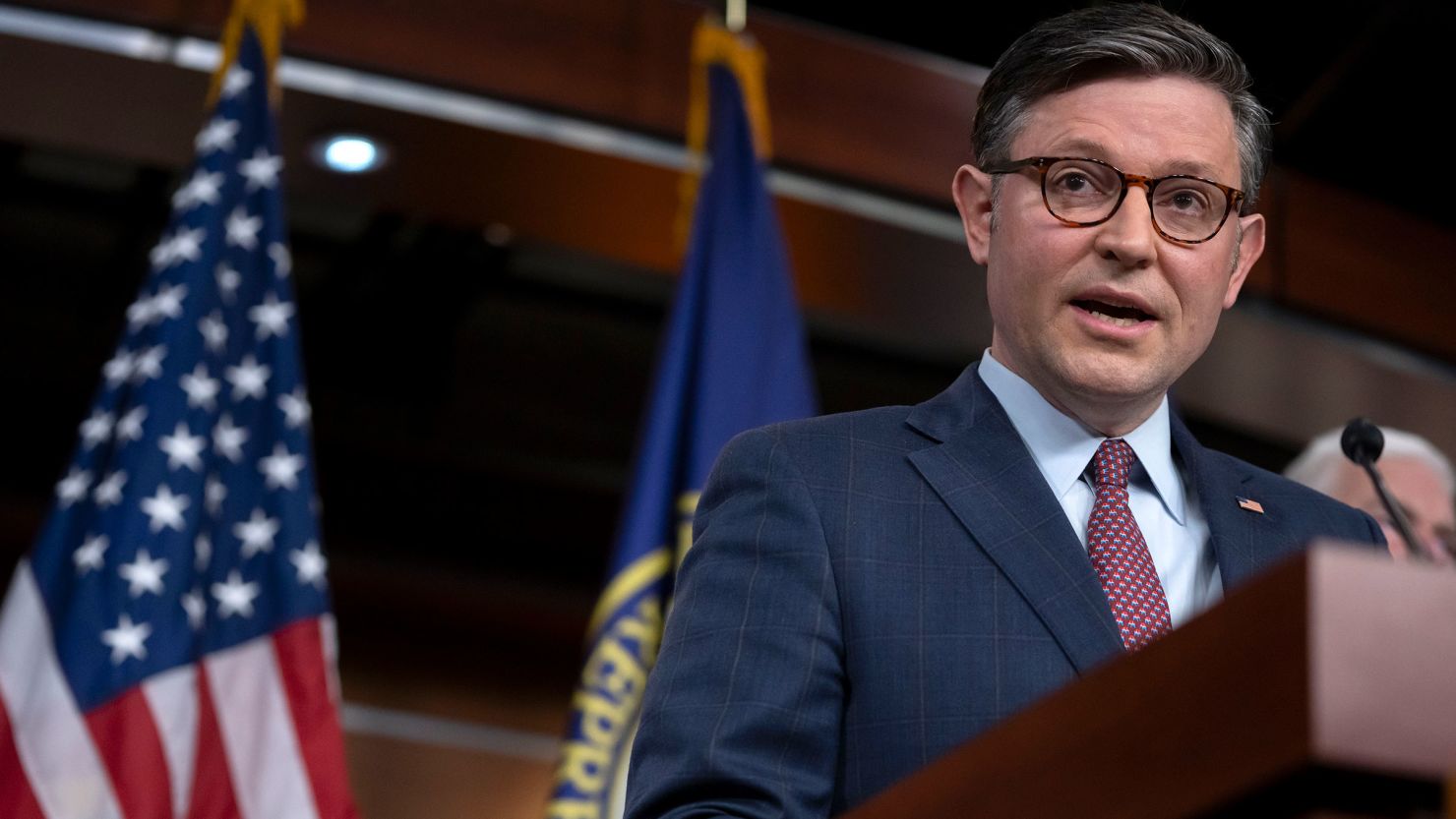Republican House Speaker Mike Johnson is overseeing one of the smallest House majorities in history as Congress confronts contentious fights over immigration, impeachment and government funding.
The narrowly divided House majority is shifting again as a result of a new vacancy.
Republicans control 219 seats while Democrats control 212 after New York Democratic Rep. Brian Higgins’ resignation from Congress last week. With a breakdown of 219 to 212, House Republicans can afford to lose only three votes to pass legislation if all members are present and voting.
There are now four vacancies in the House. In addition to Higgins’ departure, former Ohio GOP Rep. Bill Johnson resigned last month, former Speaker Kevin McCarthy resigned at the end of last year and GOP former Rep. George Santos of New York was expelled last year.
The partisan makeup will shift again soon. A special election to fill the seat previously held by Santos will take place February 13. The race is expected to be competitive and is a potential pickup opportunity for Democrats.
Story highlights
Republicans control 219 seats while Democrats control 212 after New York Democratic Rep. Brian Higgins’ resignation from Congress last week.
There are now four vacancies in the House.
The razor-thin majority presents an enormous challenge for House Speaker Mike Johnson, leaving him with almost no room for error as he navigates demands from competing wings of his party.
In addition to the tight margin, there is always the possibility that absences could further impact the vote math.
House Majority Leader Steve Scalise’s office has said that he will work remotely until returning to Washington in February as he recovers from a stem cell transplant.
Republican Rep. Hal Rogers of Kentucky was hospitalized after a car accident last month. His office subsequently announced that he had progressed to physical rehabilitation to assist in his recovery.
The razor-thin majority presents an enormous challenge for the speaker, leaving Johnson with almost no room for error as he navigates demands from competing wings of his party.
Hardline conservatives have already shown they can hold major sway in the chamber with such a narrow majority – most notably when a group of hardliners moved to oust McCarthy from the speakership in a historic vote last year.
The exact size of the far right of the House Republican Conference can vary from issue to issue. A contingent of roughly a dozen hardliners staged a rebellion on the House floor last month, taking down a procedural vote to show opposition to a spending deal Johnson had reached with Senate Majority Leader Chuck Schumer.
The ever-shrinking margin has forced Johnson to put some bills directly onto the floor under a procedural move known as suspension of the rules as his right flank has increasingly taken to tanking rule votes on the floor in a show of protest.
But that strategy compels the need for a two-thirds majority to pass bills, requiring significant Democratic support, and further alienating Johnson and the right wing of his conference.
In addition to facing pressure from conservatives, Johnson must also balance the interests of more moderate members from battleground districts who are on the front lines of the majority and who will be under intense scrutiny this election season.
There were 18 Republicans in House districts that President Joe Biden won in 2020 – a number that is now down to 17 after the expulsion of Santos. The fate of these politically vulnerable members will be key to whether the GOP can hold on to its majority.

